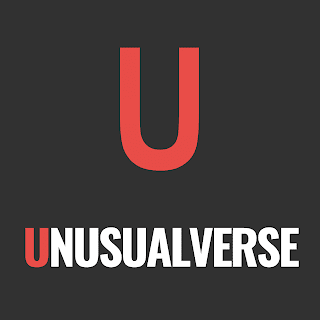Sam Lutalo-Kiingi, PhD, is a Ugandan Deaf academic, linguist, and educator, best known for his pioneering work in Ugandan Sign Language (UgSL) research and interpreter training. He is the first Deaf African to earn a PhD in Sign Linguistics and currently serves as a Senior Lecturer and Head of the Department of Hearing Impairment and Sign Language Interpretation Studies at Kyambogo University (KyU), Uganda, where he played a foundational role in establishing university-level UgSL instruction and interpreting programs.
Early Life and Education
Sam Lutalo-Kiingi was born deaf into a hearing family in Uganda. His deafness was noticed when he was born prematurely at seven months[1][4]. His mother played a pivotal role in seeking educational opportunities; when local Ugandan options were limited (with deaf students typically progressing only to Primary Four around 1977), she enrolled him in Mumias Primary School for the Deaf in Kenya, where he studied from nursery through Standard Eight [4]. Later, he attended St Joseph’s Nyang’oma Technical School for the Deaf in Kenya (1987–1989) to study electrical installation[4].
After returning to Kampala in 1989, Lutalo-Kiingi worked as a volunteer at the Directorate of Industrial Training and later in a private company, UKASCO, though his Kenyan qualifications required conversion to meet Ugandan standards[4]. Around 1992, his engagement with the Uganda National Association of the Deaf (UNAD) deepened. He co-founded the Deaf Development Association and, in partnership with the Danish Deaf Association (DDL) and UNAD, began mobilizing deaf Ugandans and advocating for communication access. This led to the development of UgSL teaching projects for parents, teachers, deaf children, and interpreters[4].
Academic Contributions and Researcher
In 1994, Sam began contributing to the development of UgSL training materials at Kyambogo University, initiating programs in sign language instruction[2]. From 1999, he collaborated with KyU and the University of Stockholm on the UgSL Dictionary project, culminating in its publication in 2006 after six years of intensive research[8]. That same year, he pursued postgraduate study in the UK—earning a postgraduate diploma in Deaf Studies at the University of Central Lancashire (UCLan) and working as a research assistant on UgSL and Tanzanian Sign Language linguistic projects. He went on to complete a PhD in Sign Linguistics at UCLan, becoming the first Deaf African to hold such a degree[2][4].
Professional Advancement
Upon returning to Uganda, Lutalo-Kiingi advanced to the position of Senior Lecturer and Head of the Department of Hearing Impairment and Sign Language Interpretation Studies (HI&SLIS) at Kyambogo University [1]. He has over two decades of experience in UgSL teaching and research, and has been instrumental in building interpreter training programs since 1994 and a diploma for UgSL interpreting since 2002[2]. In 2018, he was awarded a Visiting Fellowship by the British Academy to collaborate with Heriot-Watt University, evaluating the UgSL interpreting diploma and working toward its upgrade to a bachelor’s programme, as well as advancing curriculum development and linguistic research in sign language studies[2].
Research and Documentation
Lutalo-Kiingi’s research has included documenting the emancipation and sustainable development of the Ugandan deaf community (2015–2020), often in collaboration with linguist Goedele De Clerck[1]. He co-authored works on ethical and methodological responses to risks in fieldwork with deaf Ugandans, addressing safety, representation, and community well-being during research[1]. He also contributed chapters on sustainability, grammar, and linguistic diversity in sign language studies[1].
Impact
Sam Lutalo-Kiingi has had profound impact on deaf education, sign language research, and interpreter training in Uganda and East Africa:
- Academic and institutional authority: As head of the only university department of its kind in sub-Saharan Africa, he has shaped curricula and professional pathways for UgSL interpreters[7].
- Language standardization and documentation: His work on the UgSL Dictionary and grammatical studies has critically advanced recognition of UgSL as a legitimate language with its own grammar and vocabulary[8].
- Ethical leadership: His research contributions have foregrounded ethical considerations in working with marginalized communities, emphasizing responsible, safe, and transparent methodologies[6].
- Community empowerment: Through documentation projects and workshops, he has fostered cultural pride and historical awareness in Uganda’s deaf community.
- ResearchGate. (n.d.). Sam Lutalo-Kiingi – research profile.
- The British Academy. (n.d.). Case study: Sam Lutalo-Kiingi.
- TISLREthopia. (n.d.). Dr. Sam Lutalo-Kiingi, University of Kyambogo, Uganda.
- De Clerk, G. (2015, November 27). Telling the full story…documenting the emancipation of deaf Ugandans. The British Academy.
- Wikipedia contributors. (2025). Ugandan Sign Language. Wikipedia.
- De Clerck, G. A., & Lutalo-Kiingi, S. (2020). Ethical and methodological responses to risks in fieldwork with deaf Ugandans. In Identity, Agency and Fieldwork Methodologies in Risky Environments (pp. 68-81). Routledge.
- Lutalo-Kiingi, S., Buyinza, J., De Clerck, G. A., & Turner, G. (2022). Challenges in the professionalisation of sign language interpreting in Uganda. In The Routledge Handbook of Sign Language Translation and Interpreting (pp. 283-295). Routledge.
- Wallin, L., Lule, D., Lutalo, S., & Busingye, B. (2006). Uganda sign language dictionary. Kyambogo University.










